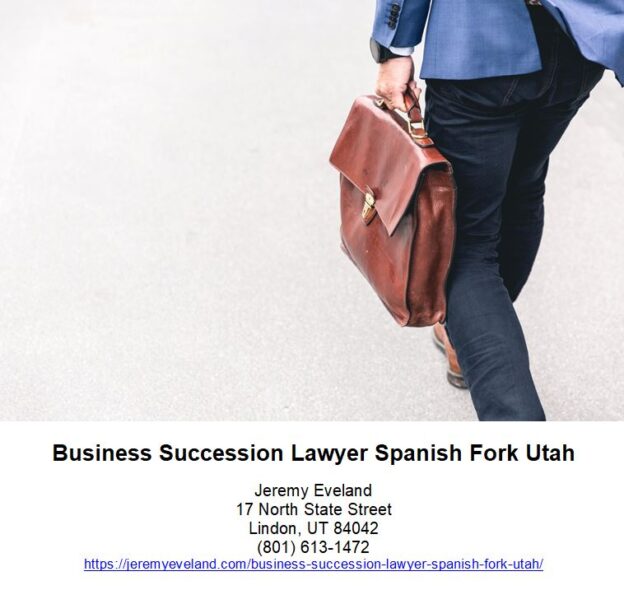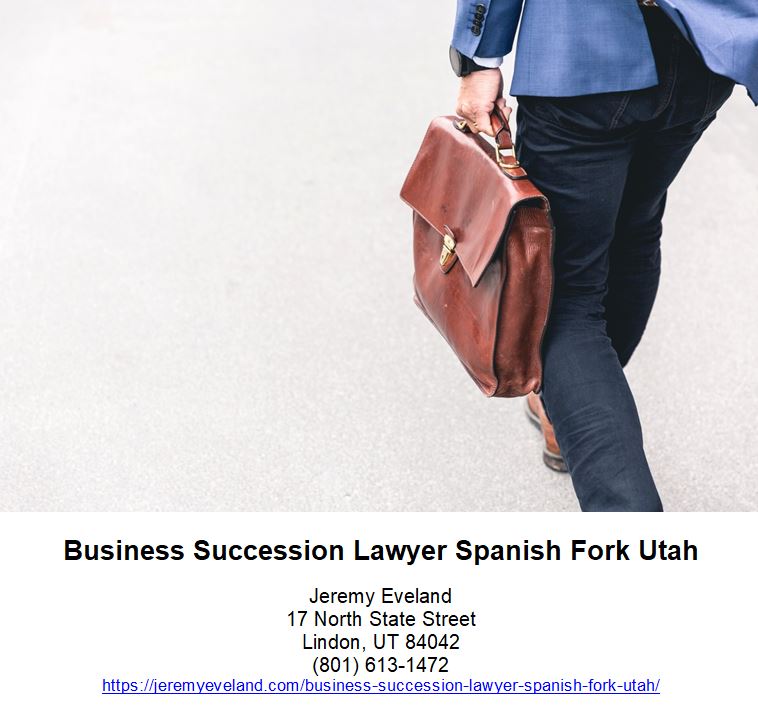In the legal world, witness testimony plays a pivotal role in determining the truth and ensuring justice is served. Whether it is a criminal case or a civil lawsuit, the accounts provided by witnesses can make or break a case. From eye-witness testimonies to expert opinions, these firsthand accounts provide valuable insights into the events that occurred. They can shed light on key details, establish credibility, and corroborate or challenge other evidence. In this article, we will explore the significance of witness testimony and its impact on the legal process. Understanding the power and importance of witness testimony is crucial for both businesses and individuals involved in legal matters. So, let us examine how witness testimony can shape the outcome of a case and why it is essential to seek the guidance of a skilled attorney who specializes in this area of law.
What is Witness Testimony?
Witness testimony refers to the oral or written statements provided by individuals who have direct knowledge or information about a particular event or situation that is relevant to a legal case. In legal proceedings, witnesses are called upon to provide their account of what they saw, heard, or experienced, with the aim of presenting evidence and supporting the arguments of the prosecution or defense. Witness testimony plays a crucial role in helping judges and jurors reach an informed decision in both criminal and civil cases.
The Importance of Witness Testimony in a Legal Case
Witness testimony is of utmost importance in a legal case as it provides key evidence that can shape the outcome of the trial. It offers a firsthand account of the events that transpired and helps establish the facts of the case. Without witness testimony, it would be difficult for the court to determine the truth and administer justice. The credibility and reliability of witnesses can significantly influence the weight given to their testimony, making it crucial to carefully evaluate the accounts provided.

Types of Witness Testimony
Eyewitness Testimony
Eyewitness testimony refers to the account given by an individual who directly witnessed an event or situation and can provide information about what they observed. This type of testimony is often seen as highly persuasive, as it is based on personal experience. However, research has shown that eyewitness testimony can be influenced by various factors, such as memory errors and bias, which can impact its accuracy.
Expert Witness Testimony
Expert witness testimony is provided by individuals who possess specialized knowledge, training, or experience in a particular field relevant to the case. These witnesses offer their expert opinion on technical or scientific matters that are beyond the understanding of the average person. Expert witness testimony can be crucial in helping the court understand complex issues and make an informed decision.
Character Witness Testimony
Character witness testimony involves individuals who are called upon to testify about the character, reputation, or behavior of another person involved in the case. This type of testimony aims to provide insight into the person’s overall character and can be used to establish a pattern of behavior or credibility. Character witness testimony is often used in cases involving defamation, assault, or other offenses where the individual’s character is relevant.
Hearsay Testimony
Hearsay testimony refers to statements made by a person who does not testify in court, but are presented through another witness. Hearsay evidence is generally not admissible in court, as it is considered unreliable and can be subject to distortion or misinterpretation. However, there are certain exceptions to the hearsay rule, where statements may be admitted if they fall within a recognized exception and meet certain criteria.
Factors That Can Impact Witness Testimony
Witness testimony can be influenced by various factors that can affect its accuracy and reliability. It is important to be aware of these factors when evaluating the credibility of a witness and the weight given to their testimony.
Memory and Perception
Memory and perception can be fallible, and witnesses may not always accurately remember or interpret events. Factors such as the passage of time, stress, or the presence of other distractions can impact a witness’s ability to recall details accurately. It is essential to consider the limitations of human memory when evaluating witness testimony.
Bias and Prejudice
Witnesses may have biases or prejudices that can influence their perception of events or their willingness to provide an accurate account. Personal relationships, prior experiences, or preconceived notions can shape a witness’s testimony and should be taken into consideration when assessing credibility.
Stress and Emotional State
Witnesses may experience high levels of stress or emotional trauma when providing testimony, particularly in cases involving violence or trauma. These emotional states can affect a witness’s ability to recall events accurately or may lead to inconsistencies or omissions in their account. It is important to be mindful of the impact of stress and emotional state on witness testimony.
Leading Questions and Suggestibility
The way questions are asked during witness testimony can influence the responses given. Leading questions, which suggest a desired answer, can lead witnesses to provide inaccurate or misleading information unintentionally. Lawyers must exercise caution when questioning witnesses to avoid influencing their testimony.

Challenges in Evaluating Witness Testimony
Evaluating witness testimony can be challenging due to various factors that can impact its credibility and reliability. Lawyers, judges, and juries must carefully analyze the evidence presented and consider the following challenges.
Credibility Issues
Determining the credibility of a witness is crucial in evaluating their testimony. Factors such as inconsistencies in their story, a history of lying or criminal behavior, or motives to lie or distort the truth can impact their credibility. Assessing the witness’s demeanor, demeanor, and the consistency of their testimony can help identify credibility issues.
Inconsistencies and Contradictions
Inconsistencies or contradictions in a witness’s testimony can raise doubts about the accuracy and reliability of their account. Discrepancies in the details provided, discrepancies between their testimony and other evidence presented, or changing statements over time can be indications of unreliability. Lawyers must thoroughly cross-examine witnesses to identify any inconsistencies and bring them to the attention of the court.
Reliability and Accuracy
Evaluating the reliability and accuracy of witness testimony is crucial in determining its weight in a legal case. Factors such as the witness’s ability to perceive events accurately, their memory of the events, and potential biases or motives to lie must be carefully considered. Corroborating evidence or the lack thereof can also impact the reliability of witness testimony.
Legal Procedures for Presenting Witness Testimony
In legal proceedings, witness testimony is presented through specific procedures aimed at ensuring fairness and an accurate presentation of the evidence. The following procedures are commonly used in presenting witness testimony in court.
Direct Examination
During direct examination, the party who called the witness presents their testimony by asking open-ended questions. The goal is to elicit relevant information and allow the witness to provide their account of the events in question. The lawyer must be careful to ask non-leading questions to avoid influencing the witness’s testimony.
Cross-Examination
Following the direct examination, the opposing party has the opportunity to cross-examine the witness. Cross-examination involves questioning the witness to challenge their credibility, test their memory or perception, or elicit inconsistent or contradictory statements. Lawyers employ various techniques to undermine the credibility or reliability of the witness during cross-examination.
Impeachment of Witness
The impeachment of a witness occurs when evidence is presented to challenge the credibility or reliability of their testimony. Impeachment can be done by introducing evidence of prior inconsistent statements, demonstrating a motive to lie or bias, or exposing the witness’s untruthfulness. The credibility of a witness plays a significant role in the weight given to their testimony, and impeachment can greatly impact the outcome of a case.
Common Issues with Witness Testimony in Criminal Cases
In criminal cases, witness testimony can be subject to specific issues that pose challenges to the accuracy and reliability of the evidence presented. Understanding these issues is essential when evaluating witness testimony in criminal proceedings.
Eyewitness Misidentification
Eyewitness misidentification occurs when a witness mistakenly identifies a suspect or falsely remembers details about the crime. Factors such as poor lighting, stress, or the suggestiveness of identification procedures can lead to inaccurate eyewitness testimony. It is crucial to consider the potential for misidentification when assessing the reliability of eyewitness testimony.
False Memories
False memories can occur when a witness recalls an event that did not actually happen or remembers it differently from how it occurred. Factors such as suggestive questioning, exposure to misleading information, or the passage of time can contribute to the formation of false memories. Lawyers must be aware of the possibility of false memories and challenge the accuracy of the witness’s testimony when necessary.
Coerced Testimony
In some cases, witnesses may be coerced or pressured into providing false or misleading testimony. This can occur through intimidation, threats, promises of leniency, or other forms of manipulation. It is crucial to uncover any coercion or duress experienced by a witness to determine the veracity of their testimony.
Recanted Testimony
Witnesses may sometimes recant their previous testimony, withdrawing their previous statements or changing their account of events. Recantations can occur due to fear, intimidation, coercion, or a change in the witness’s circumstances or perspective. Lawyers must carefully assess the reasons behind a recantation and evaluate the credibility of the witness.
The Role of Witness Testimony in Civil Cases
In civil cases, witness testimony is crucial in presenting evidence and supporting the claims or defenses of the parties involved. Witnesses can provide firsthand accounts, expert opinions, or character assessments that help establish liability, damages, or other elements of the case. Witness testimony in civil cases aims to persuade the judge or jury of the merits of the argument and the need for a particular outcome.

The Weight of Witness Testimony in Legal Proceedings
The weight given to witness testimony in legal proceedings depends on various factors, including the presence of corroborating evidence, the credibility of the witness, and the instructions provided to the jury. Understanding the factors that influence the weight given to witness testimony is essential when evaluating its impact on a case.
Corroborating Evidence
Corroborating evidence refers to additional evidence that supports or confirms the testimony provided by a witness. Corroborating evidence can significantly enhance the weight given to witness testimony by providing independent proof of the events or supporting the witness’s credibility. Lawyers must seek out and present corroborating evidence to strengthen their case.
Witness Credibility
The credibility of a witness is a vital factor in determining the weight given to their testimony. Factors such as consistency, honesty, bias, or motives to lie can impact a witness’s credibility. Lawyers must present evidence and arguments that challenge or support the credibility of witnesses to persuade the court and the jury.
Jury Instructions on Witness Testimony
Jury instructions provided by the judge to the jury play a significant role in shaping their evaluation of witness testimony. Instructions may guide the jury on how to assess witness credibility, the importance of corroborating evidence, or how to consider witness biases or motivations. Lawyers must request appropriate jury instructions to ensure the jury’s understanding and evaluation of witness testimony aligns with their arguments.
Admissibility of Witness Testimony
The admissibility of witness testimony in court is subject to certain rules and requirements. Understanding these rules is essential when presenting or challenging witness testimony in legal proceedings.
Hearsay Exceptions
Hearsay testimony is generally considered unreliable and is therefore excluded from court proceedings. However, there are exceptions to the hearsay rule that allow certain hearsay statements to be admitted as evidence. These exceptions include statements made under certain circumstances, such as spontaneous declarations or statements made in the course of medical treatment. Lawyers must be familiar with these exceptions to present or challenge hearsay testimony effectively.
Expert Witness Qualifications
Expert witness testimony is subject to specific requirements regarding the qualifications and expertise of the witness. The court determines whether an individual possesses the necessary qualifications to provide expert testimony in a particular field. Lawyers must establish the expert’s credentials and expertise to ensure the admissibility of their testimony.
Character Witness Relevance
Character witness testimony must be relevant to the case at hand to be admissible. Lawyers must establish the relevance of a character witness’s testimony and demonstrate how it supports their argument or refutes the opposing party’s claims. Character witness testimony must not be used solely to appeal to the jury’s emotions or personal opinions.
Probative Value and Prejudicial Effect
The court assesses the probative value and prejudicial effect of witness testimony to determine its admissibility. Evidence that is highly prejudicial but lacks substantial probative value can be excluded from the proceedings. Lawyers must present arguments that highlight the probative value of witness testimony while addressing any potential prejudice that may arise.
In conclusion, witness testimony plays a critical role in legal cases by providing firsthand accounts, expert opinions, or character assessments. However, its credibility, reliability, and accuracy can be influenced by various factors such as memory, bias, stress, and leading questions. Evaluating witness testimony poses challenges, including assessing credibility, consistency, and reliability. Witness testimony procedures involve direct examination, cross-examination, and impeachment of witnesses. In criminal cases, eyewitness misidentification, false memories, coerced testimony, and recanted testimony are common issues. Witness testimony also holds significance in civil cases, where it helps establish liability and damages. The weight of witness testimony depends on factors such as corroborating evidence, witness credibility, and jury instructions. Admissibility rules apply to witness testimony, including hearsay exceptions, expert witness qualifications, character witness relevance, and probative value versus prejudicial effect considerations. By understanding the nuances of witness testimony, legal professionals can effectively present, challenge, and evaluate evidence in support of their case. Call our law firm to schedule a consultation and learn how we can assist you in navigating the complexities of witness testimony in your legal matter.
FAQs
-
Can a witness refuse to testify in court?
- In certain circumstances, witnesses may assert their right against self-incrimination and refuse to testify. However, there are exceptions to this right, and the court may compel a witness to testify under certain circumstances.
-
Is eyewitness testimony always reliable?
- Eyewitness testimony can be subject to inaccuracies and is influenced by various factors. While it can be persuasive, it is important to carefully evaluate eyewitness testimony and consider corroborating evidence and other factors that may impact its reliability.
-
What happens if a witness lies under oath?
- Lying under oath, also known as perjury, is a serious offense. If a witness is found to have lied under oath, they may face criminal charges and potential penalties. It is essential to maintain the integrity of the legal system and hold witnesses accountable for providing false information.
-
Can witness testimony alone determine the outcome of a case?
- Witness testimony is an important piece of evidence in a legal case, but it is not the sole determining factor. The court considers various forms of evidence, including documents, physical evidence, and expert opinions, in making its decision.
-
Are there limitations on who can be a character witness?
- There are generally no strict limitations on who can be a character witness. However, the witness must have sufficient knowledge of the individual’s character and be able to provide relevant information to support their testimony.
Remember, legal matters can be complex, and it is always advisable to consult with an experienced attorney to ensure proper guidance and representation tailored to your specific circumstances. Please reach out to our firm to schedule a consultation and discuss how we can assist you with your legal needs.





